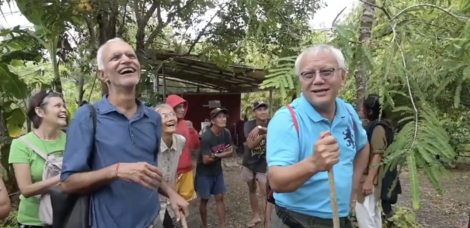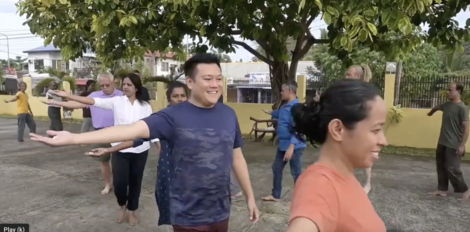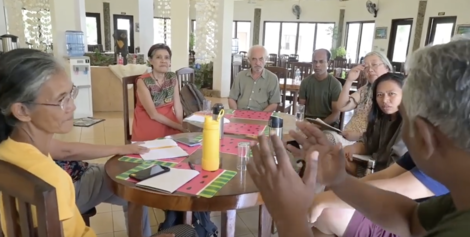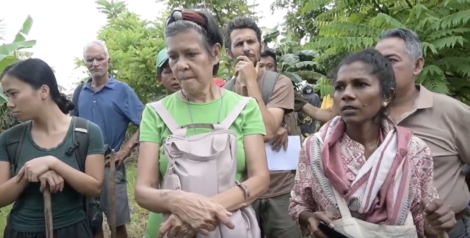The first day was marked by a trip to the municipality of Puerto Princesa, where, after words from the province’s bishop and mayor, we heard a keynote lecture from Benita Shah and her reflections on over 30 years of experience in India, highlighting the impact of biodynamics on soil, health, and social relations. Her lecture was supported both by insights into the philosophical underpinnings that guide our need for a more integrated approach to agriculture and by significant facts related to the evolution of farm health in India.
On day two, we were treated to an outing to two local farms run by conference organizers Walter Siegfried-Hahn and Grace Hahn. This gave us the opportunity to interact with the local flora and understand the opportunities and challenges of conducting biodynamic agriculture in the tropics. Tropical climates lend themselves to diverse agroforestry combinations, and we visited a variety of plants, including Calabash, Mimosa, Nila, Arrowroot, and Legundi, learning about their roles in the farm organism as well as their uses in medicine and food. Back at the conference center, we also began a series of workshops that would continue into days three and four of the gathering, covering diverse issues based on the expertise of the attending participants. These workshops ranged from “Novel Approaches to Understanding Quality” to “A Technical Introduction to Seed Saving” to “Education and Extension in Rural India,” as well as rethinking farm economics and strengthening connections in the farm organism. One presentation by Sam Charanwong (Thailand), a resolute food scientist who grows and processes a vast array of Demeter- and organic-certified food products, addressed the challenges of the certification process, leaving open the question of how an international standard can also respect cultural differences.
Among other key topics during the gathering, the role of the “7 Life Processes” as presented by Rudolf Steiner resonated as a recurring theme. The conference organizers emphasized the importance of understanding these seven life processes in organizing and comprehending social activity and the learning process. Kalle Huebner from the Section for Agriculture of the Goetheanum wove this theme into a series of workshops for those interested in deepening their understanding of these processes.
We cannot complete the picture of this conference without recognizing the significant presence of BD researchers, including Dr. Regina Shamila Dass (India), Dr. Thomas Sheridan (India), Thangapandian Dhanikodi (India), Prof. Pamela Fernandez (Philippines), and Alex Edleson (Indonesia). During a final workshop for post-conference reflection, participants highlighted the importance of making research on BD farm development in the Asian region more visible as part of raising awareness. More online meetings were proposed for the coming year to compile and cross-check research objectives.
As a final note, we must also acknowledge the absolute coherence of the organizers, who, with the help of a professional chef, provided a wholesome menu of meals, including locally caught fish, foraged plants, and biodynamic rice, nourishing both the participants’ hearts and stomachs. Each day began with Agni Hotra, led by Professor Fernandez, a sunrise ritual that harnesses the powerful cosmic energy of the rising sun to elevate and radiate our positive intentions into the surroundings. And so, as we continued our journeys back, we felt as if we were carried forward on these rays of light.



